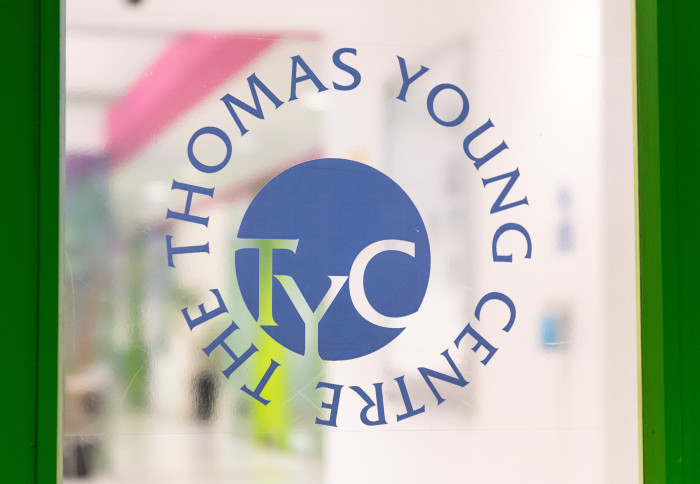
- This event has passed.
TYC Recently Appointed Academic Talks
King’s Council Room, King’s College London
10 January 2024 @ 2:00 pm – 6:00 pm
Schedule
14:00 Arrival: Tea, coffee, and sweet treats
14:15 Jan Tomczak, King’s College London: Simulating electronic structure and transport properties for correlated materials
14:45 James Ewen, Imperial College London: From silicon to silicone alternatives: towards virtual screening of hair care ingredients
15:15 Break: Tea, coffee and biscuits
15:45 Ivana Savic, King’s College London: Heat transport in strongly anharmonic materials from first principles using the Green-Kubo approach
16:15 Venkat Kapil, University College London: Machine Learning for full quantum first-principles simulations
16:45 Drinks reception
Jan M. Tomczak – King’s College London: Simulating electronic structure and transport properties for correlated materials
Owing to strong Coulomb interactions, electrons in correlated materials are in a collective state that is extremely sensitive to external perturbations, resulting in rich phase-diagrams and a propensity for large response functions. This high sensitivity is a harbinger for many technological applications, such as optoelectronic switches, sensors, memory storage, and thermoelectrics. In this talk I will first highlight our efforts toward a fundamental understanding of correlated materials, with a particular emphasis on ultra-thin oxide films [1-3], that could become elements in future oxide-electronics devices.
Electronic correlations naturally lead to excitations with finite lifetimes. In a second part, I will discuss lifetime-effects in transport properties of narrow-gap semiconductors. Our methodology [3,4] and package [5] (https://github.com/LinReTraCe) is as efficient as popular codes based on Boltzmann theory in the relaxation time approximation, but captures important corrections when lifetimes are finite.
References:
[1] M. Pickem, J. Kaufmann, K. Held, JMT. Phys. Rev. B 104, 024307 (2021)
[2] M. Pickem, J. M. Tomczak, K. Held. Phys. Rev. Research 4, 033253 (2022)
[3] M. Pickem, E. Maggio, JMT. Communications Physics 4, 226 (2021)
[4] M. Pickem, E. Maggio, JMT. Phys. Rev. B 105, 085139 (2022)
[5] M. Pickem, E. Maggio, JMT. SciPost Phys. Codebases 16 (2023)
James P. Ewen – Imperial College London: From silicon to silicone alternatives: towards virtual screening of hair care ingredients
Shampoos and conditioners form part of many people’s daily routine. These complex formulated products aim to cleanse and repair the hair surface to maintain a satisfactory look and feel. Huge volumes of these products are sold every year and the global hair care market is valued at close to $100B. There is currently a industry-wide drive to improve the environmental credentials (e.g. biodegradability, biocompatibility, and sustainability) of hair care products, without compromising their performance. Molecular simulations are seen as an important tool with which to reduce the cost and increase the speed of R&D towards more eco-friendly products compared to laboratory-based methods and panel testing. In this talk, I will present a coarse-grained molecular dynamics framework to study adsorption, wettability [1], and friction [2] of hair care ingredients on biomimetic hair surfaces. I will present results for simple surfactants [3], polymers, and polymer-surfactant complexes [4]. Ongoing work to generalise the methodology to enable virtual screening of the performance of potential new hair care ingredients and formulations will also be discussed.
References
[1] Weiand et al., Soft Matter, 2022, 18, 1779 (https://doi.org/10.1039/d1sm01720a)
[2] Weiand et al., Nanoscale, 2023, 15, 7086 (https://doi.org/10.1039/d2nr05545g)
[3] Weiand et al., PCCP, 2023, 25, 21916 (https://doi.org/10.1039/D3CP02546B)
[4] Weiand et al., ChemRxiv, 2023 (https://doi.org/10.26434/chemrxiv-2023-9c6fz)
Ivana Savic – King’s College London: Heat transport in strongly anharmonic materials from first principles using the Green-Kubo approach
Over the last 15 years, there has been a great progress in the development of theoretical and computational tools to describe lattice thermal conductivity in realistic materials from first principles. Standard approaches are based on the phonon Boltzmann transport equation and a perturbative description of phonon-phonon interactions, including only third order anharmonicity. As a result, they are appropriate only for weakly anharmonic materials. In this talk, I will present a new method to simulate lattice thermal transport in strongly anharmonic materials, based on the Green-Kubo formalism and a non-perturbative treatment of phonon-phonon interactions [1]. I will also present the application of this method to understand the lattice thermal conductivity of a well-known thermoelectric material, GeTe, near the ferroelectric phase transition. The limitations of the method will also be discussed [2].
[1] D. Dangic, O. Hellman, S. Fahy, and I. Savic, npj Comp. Mater. 7, 57 (2021)
[2] D. Dangic, S. Fahy, and I. Savic, Phys. Rev. B 106, 134113 (2022)
Venkat Kapil – University College London: Machine Learning for full quantum first-principles simulations
Computational chemistry and material science hinges on the precision and efficiency of first-principles simulations. Ideally, these simulations should incorporate the quantum nature of all electrons and nuclei, achieving predictive accuracy across areas from protein folding, drug design, and catalysis to nanoscale thermodynamics and quantum materials. Traditional “full quantum” simulations are, however, computationally prohibitive. This presentation introduces a modern first principles framework that significantly reduces these costs while maintaining high fidelity. Our method leverages physics-based machine learning to estimate the system’s Born-Oppenheimer potential energy surface and other essential electronic quantum effects, such as polarization and polarisability. Demonstrating its efficacy, we predict hitherto unfeasible first-principles phase diagrams of nanoscale systems [1] and relative stabilities of molecular crystal polymorphs [2].
Further, we address the challenge of modelling nuclear motion by mapping quantum dynamics to an effective classical correction akin to effective potentials by Feynman and Hibbs [3]. Our work translates quantum nuclear motion to simple classical molecular dynamics. To showcase our method’s capability, we predict vibrational spectra of bulk and interfacial aqueous phases, achieving quantitative agreement with experiments for the first time [4]. Our model offers a path for comprehensive quantum simulations, combining accuracy with the ease of prevalent classical methods.
References
V. Kapil, C. Schran, A. Zen, J. Chen, C. Pickard, and A. Michaelides. Nature 2022, 609, 7927
V. Kapil, and E. Engel. Proc. Nat. Acad. Sci. 2022, 119, 6
F. Musil, I. Zaporozhets, F. Noé, C. Clementi, and V. Kapil, J. Chem. Phys. 2022, 157, 18
V. Kapil, D. Kovács, G. Csányi, and A. Michaelides, Faraday Discuss., 2023
Bio : Venkat Kapil’s research develops machine learning-driven methods for finite-temperature first-principles materials modeling. His research aims to understand complex nanoscale systems’ thermodynamics, transport, and quantum mechanics. Venkat obtained his undergrad in Theoretical Chemistry from IIT Kanpur in 2015. He received a Ph.D. in Material Science from the Swiss Federal Institute of Technology Lausanne (EPFL) for developing several path-integral simulation methods to significantly reduce the cost of simulating quantum nuclear effects. He also developed and released v2.0 of the i-PI code. Venkat’s postdoctoral research, hosted in Angelos Michaelides’ research group at the University of Cambridge, was funded by the Swiss National Science Foundation’s “Mobility Fellowship,” the “Early Career Oppenheimer Fellowship,” and the “Sydney Harvey Junior Research Fellowship” by Churchill College. He developed new techniques at the intersection of machine learning and quantum statistical mechanics for full quantum first-principles simulations of materials. In January 2024, Venkat will join University College London as a Lecturer (Assistant Professor) in the Department of Physics and Astronomy.
Organised by:
Martijn Zwijnenburg
m.zwijnenburg@ucl.ac.uk

